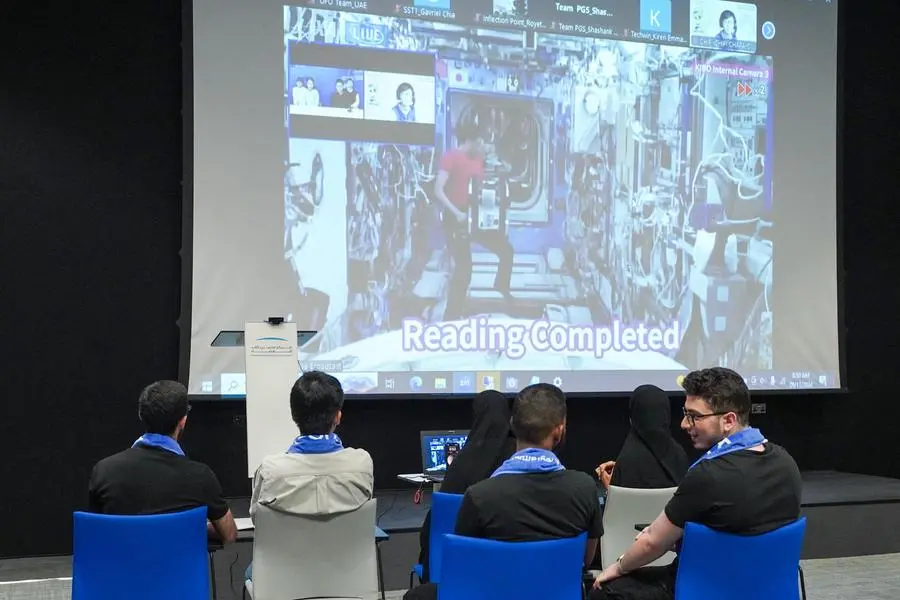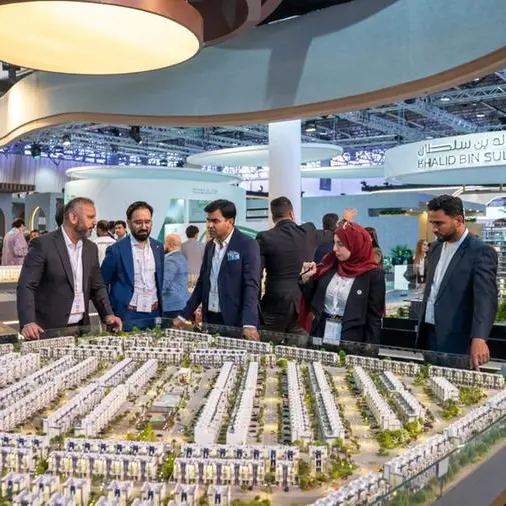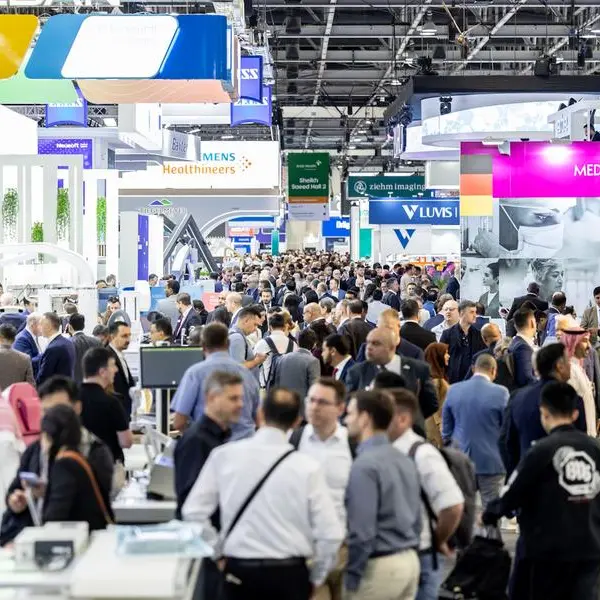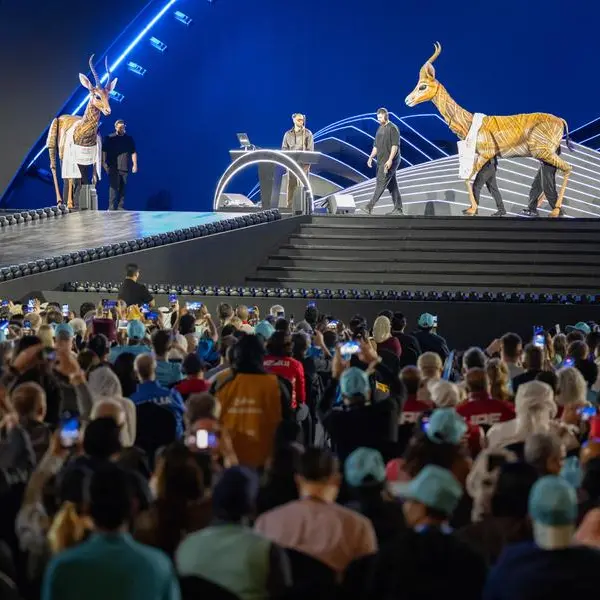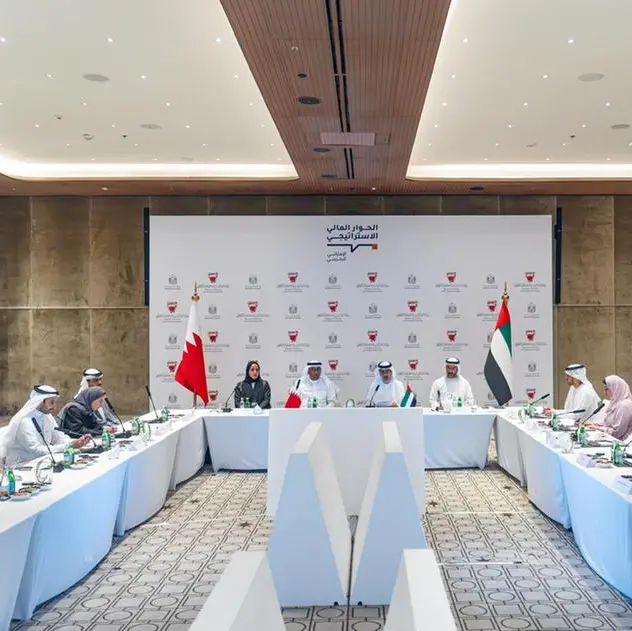PHOTO
- Challenge organised by JAXA in collaboration with NASA and MBRSC
- Team from United Arab Emirates University represented UAE in final round
- In final round, students tasked with operating the Astrobee robot to assist astronauts in locating missing experiment tools aboard the ISS
Dubai – UAE: The Mohammed Bin Rashid Space Centre (MBRSC) today announced that the final round of the 5th cycle of the Kibo Robot Programming Challenge (Kibo-RPC) concluded today with team from the United Arab Emirates University, representing the UAE, taking part in the event from the Centre’s headquarters in Dubai. The international robotics competition was jointly organised by the Japan Aerospace Exploration Agency (JAXA), NASA, and MBRSC, with 13 teams competing in the final round, during which they controlled Astrobee, a free-flying robot in the Japanese Experiment Module (Kibo) aboard the International Space Station (ISS).
The UAE’s team, led by Maryam Al Ketbi and her teammates Mohammad Mahmoud, Hussein ElEmam, Sara AlMarzooqi, Akio Shabata AlNajjar, Abdulaziz AlKanakri from the United Arab Emirates University, demonstrated exceptional programming skills in the preliminary rounds to secure their position in the final round. The team was presented with certificates for their performance by Adnan AlRais, Assistant Director General of Space Operations and Exploration Sector, MBRSC.
Adnan AlRais, Assistant Director General of Space Operations and Exploration Sector, MBRSC, said, “The Kibo Robot Programming Challenge is a prime example of the value of international collaboration in promoting STEM education and inspiring the next generation of space enthusiasts. We are proud of the UAE team’s achievements from the preliminary to the final round. This competition not only hones technical skills but also strengthens the bonds between nations working towards the shared vision of space exploration.”
Kibo-RPC is an educational initiative designed to inspire students in science, technology, engineering, and mathematics (STEM) through a hands-on robotics programming competition. Students are given the opportunity to operate Astrobee, a free-flying robot, in an analog simulation environment before advancing to the on-orbit final round held in the Kibo module on the ISS. This year’s challenge focused on helping astronauts locate missing experiment tools within the Kibo module by controlling Astrobee remotely through programming. This year, the 5th cycle of the Kibo-RPC set a new record with 661 teams and 2,788 applicants from 35 countries and regions, including member and non-member countries and the United Nations Office for Outer Space Affairs (UNOOSA).
The Kibo-RPC is part of a broader MBRSC-JAXA-NASA collaboration that includes the Kibo-ABC initiative, which empowers students to programme free-flying robots on the International Space Station. During astronaut H.E. Sultan AlNeyadi’s 6-month mission on board the ISS, he had overseen the on-orbit preparations of the 4th Kibo-RPC that spanned from May to August 2023. AlNeyadi conducted various technical assessments crucial for the successful implementation of the competition. One of the major tasks was a demonstration where Astrobee's flying patterns and behaviour were closely observed, along with ensuring the equipment settings were primed for the actual final round. The comprehensive results of his operations were handed over to JAXA astronaut Satoshi Furukawa, who then took over the management of the on-orbit final round. The partnership also builds on the success of previous collaborative initiatives, including an educational project featuring astronaut Hazzaa AlMansoori and the Int-Ball, a camera robot onboard the ISS, as well as seminars on space robot technologies and the attitude control technology of spacecraft.
-Ends-
For Media Queries:
MBRSC Media Team - mbrsc@quillmena.com
ABOUT MOHAMMED BIN RASHID SPACE CENTRE (MBSRC):
MBRSC is an advanced scientific and technological hub, responsible for making the UAE a world leader in space services and exploration.
Established in 2006, the Mohammed Bin Rashid Space Centre (MBRSC) started out with five engineers, who took it upon themselves to develop their capabilities and expand their knowledge in the field of space, relying on strong will and solid determination. Since then, the Centre has continued its journey to be the incubator of the UAE National Space Programme. The MBRSC is home to the UAE Satellite Programme, UAE Astronaut Programme, Mars 2117 Programme and Emirates Mars Mission, among others. Under its satellite programme, the Centre has built, developed, and operated several Earth observation satellites, including DubaiSat-1, DubaiSat-2 and KhalifaSat, the first satellite that was fully built by Emiratis in 2018. The Centre has also developed MBZ-SAT, the most advanced satellite in the region, which has been approved for launch.
MBRSC is also developing the Emirates Airlock, a crew and science airlock module for the Gateway lunar space station, humanity's first international outpost to orbit the Moon. Additionally, the UAE will also be sending an Emirati astronaut on a Moon mission. Under the UAE Astronaut Programme, MBRSC currently has four astronauts, two of who have undertaken missions to the International Space Station, including the longest Arab space mission in history by H.E. Dr. Sultan Saif AlNeyadi. The Mars 2117 Programme includes the Emirates Lunar Mission, UAE Analog Programme and Space Ventures.
